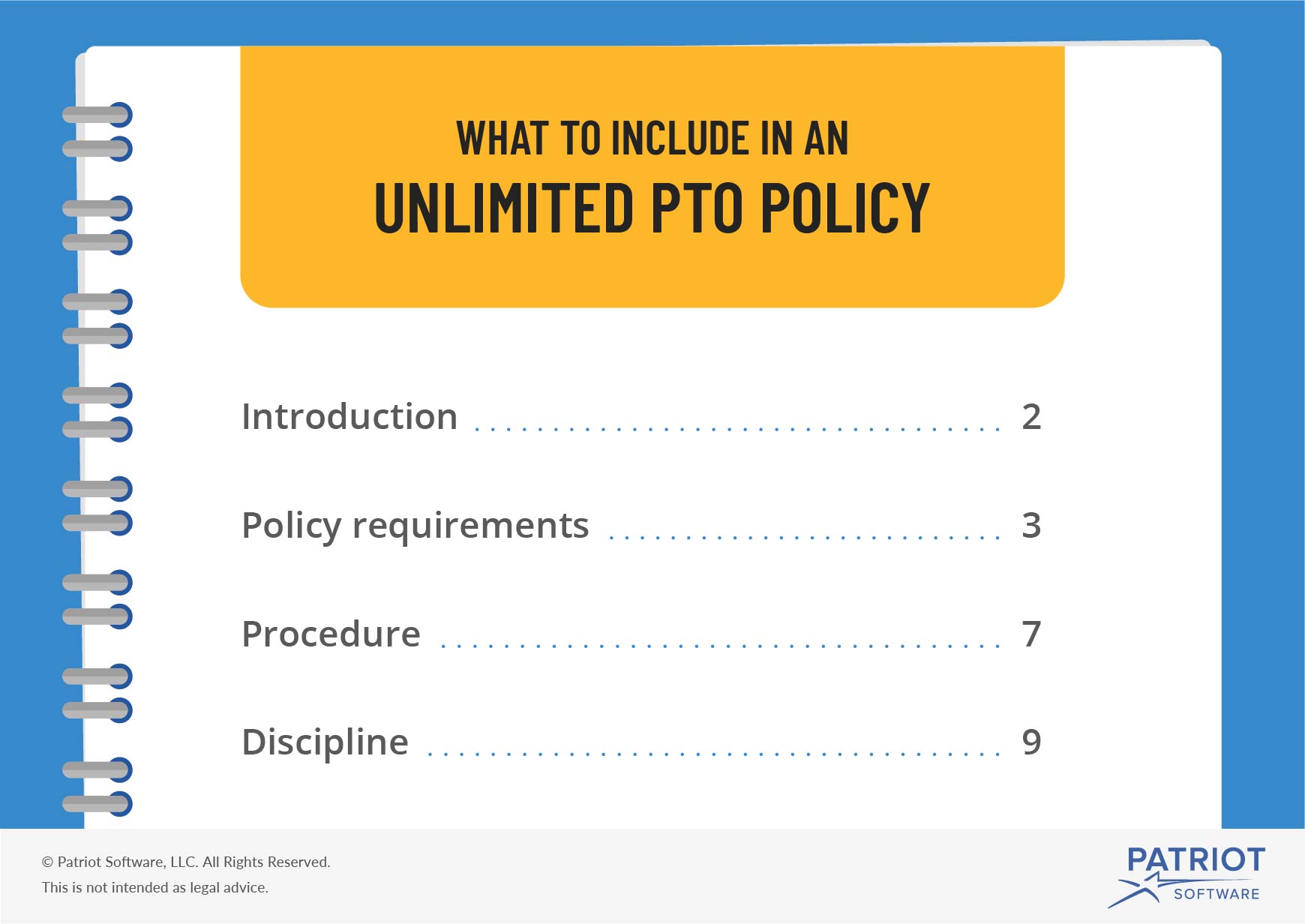Offering paid time off (PTO) is a benefit many small business owners extend to employees. Although the Fair Labor Standards Act (FLSA) does not typically require PTO, many business owners provide paid vacation and personal days. And, some employers may even offer unlimited PTO policies. Have you or your clients considered creating an unlimited PTO policy?
What is an unlimited PTO policy?
Unlimited PTO allows employees to take as much time off as they would like for sick leave, vacation, or other types of time off. However, unlimited PTO must not interfere with business operations and tasks.
Companies that offer PTO or vacation time to employees have the option of providing unlimited PTO policies. According to one source, one to two percent of employers provide unlimited PTO. But, more employers are beginning to accept the idea of unlimited PTO.
Consider the following questions when creating your unlimited PTO policy:
- How do you prevent employees from abusing unlimited PTO?
- How will you keep track of unlimited days used?
- When will unlimited PTO be available to a newly hired employee?
What to include in an unlimited PTO policy
Unlimited PTO policies can vary. Consider including these sections while creating your unlimited PTO policy.
Introduction
Introduce employees to your unlimited PTO policy. Explain what employees can use the unlimited PTO for (e.g., vacations or illnesses) and how to take time off.
Explain when employees can begin using unlimited PTO (e.g., 90 days after hire). Also, be sure to include how being a full-time or part-time employee impacts unlimited PTO.
Policy requirements
Be sure to include specific requirements about using unlimited PTO. Specify if employees must take at least a certain number of days off per year.
Consider requiring a minimum time for PTO. Minimum PTO helps ensure employees take PTO and avoid exhaustion.
Include whether or not employees can accrue time off. And, mention if employees can receive compensation for unused leave.
Procedure
Having a solid process ensures fairness and a more efficient unlimited PTO system.
Include requirements for employees to follow such as:
- Communicating with their team about when they plan to take PTO
- Postponing and managing tasks and projects according to when workers take time off
- Notifying supervisors and managers in advance (e.g., two weeks)
Include procedures for approving requests, the maximum time you can authorize, and reasons you might reject a PTO request.
Discipline
Although every business is different, some employees may abuse the unlimited PTO policy.
Lay out disciplinary actions (e.g., warnings or write-ups) for employees who take advantage of unlimited PTO.
Implementing unlimited PTO
Implementing unlimited PTO has many advantages, such as improved retention, business culture, and budget. Weigh other unlimited PTO pros and cons before implementing a policy.
A challenge of offering unlimited PTO is ensuring employees take advantage of the opportunity in a healthy way (e.g., not going on weekly vacations). Before implementing an unlimited PTO policy, determine whether or not your business can handle it. Some businesses, such as retailers or restaurants, might not benefit from unlimited PTO.
If you decide to implement unlimited PTO, set an example. Your employees should feel comfortable taking PTO while also not taking too much time off.
After you create your unlimited PTO policy, add it in your employee handbook or other new hire paperwork.
=========
This article first appeared on the Patriot Software blog.
Thanks for reading CPA Practice Advisor!
Subscribe Already registered? Log In
Need more information? Read the FAQs




